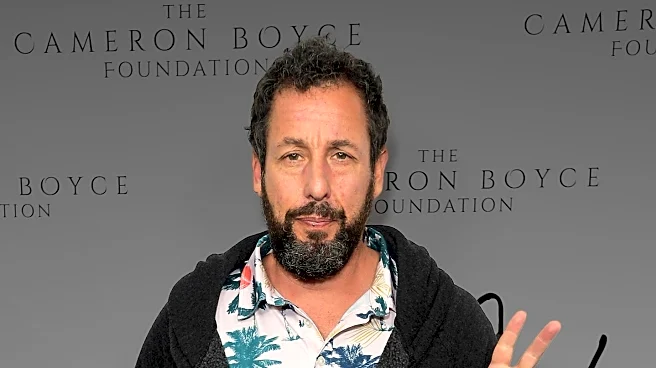What's Happening?
The Jewish Community Foundation of Montreal (JCF) is actively working to engage families in philanthropy, emphasizing the importance of bridging generational gaps in charitable giving. According to the 2025
Next Generation of Philanthropy report by Indiana University Lilly Family School of Philanthropy, younger generations, including Millennials and Gen Z, are reshaping the philanthropic landscape. These groups prioritize social justice causes such as mental health, racial equity, and climate change, and prefer using digital tools for their donations. The JCF facilitates family philanthropy planning by encouraging discussions about shared values and philanthropic goals, helping families align on causes they care about. Initiatives like Successor Roles in Donor-Advised Funds (DAFs) ensure continuity in family giving, while the Center for Philanthropic Learning provides education and strategic support for planned giving.
Why It's Important?
This shift in philanthropic focus is significant as it reflects broader societal changes in values and priorities. By engaging younger generations in philanthropy, families can ensure the continuity of their charitable efforts while adapting to new social and cultural dynamics. The emphasis on social justice and the use of digital tools for giving highlight a move towards more transparent and impactful philanthropy. This evolution in giving practices could lead to increased support for grassroots organizations and initiatives that align with the personal values of younger donors. The JCF's efforts to facilitate these conversations and provide strategic support are crucial in helping families navigate these changes and maintain their philanthropic legacy.
What's Next?
As younger generations continue to influence the philanthropic landscape, organizations like the JCF are likely to expand their programs to further support family engagement in giving. This may include developing more digital tools and platforms to facilitate donations and enhance transparency. Additionally, there could be an increased focus on educating families about the impact of their giving and fostering long-term relationships with the causes they support. The JCF's role in guiding these discussions and providing resources will be essential in helping families adapt to these changes and continue their philanthropic efforts in meaningful ways.
Beyond the Headlines
The generational shift in philanthropy also raises ethical and cultural considerations. As younger donors prioritize social justice causes, there may be increased scrutiny on the impact and effectiveness of charitable organizations. This could lead to a demand for greater accountability and transparency in the nonprofit sector. Furthermore, the move away from traditional religious giving towards more diverse causes reflects broader cultural shifts in values and identity. These changes may influence how families approach philanthropy, encouraging more inclusive and equitable giving practices.








